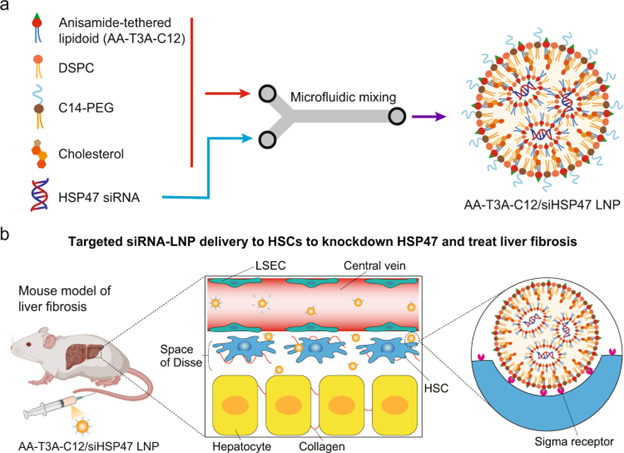Penn Engineering’s Michael Mitchell, PhD, the J. Peter and Geri Skirkanich Assistant Professor of Innovation, and Xuexiang Han, PhD, a Postdoctoral researcher in the Mitchell Lab, have developed a new class of anisimide-functionalized lipids that enables targeted delivery of lipid nanoparticles (LNPs) to activated fibroblasts in the liver. These targeted LNPs could be used to deliver RNA therapeutics to potentially treat and reverse damage caused by liver fibrosis. Further, this synthesis method developed by the Mitchell Lab provides a way to tailor LNPs to other previously hard-to-target cells and tissues in the body.
PCI is actively seeking partners and investors for further development of this exciting technology opportunity. You can find more information about the technology here. You can also learn more in this Penn Engineering article here.

(a) Formulation of AA-T3A-C12/siHSP47 LNP via microfluidic mixing. (b) Scheme of targeted AA-T3A-C12/siHSP47 LNP delivery to activated HSCs to knockdown HSP47 and treat liver fibrosis. HSCs are located in the space of Disse, an area between LSECs and hepatocytes. After rapidly shedding PEG in circulation, the LNP exposes multivalent anisamide ligands on its surface that can strongly bind with sigma receptors overexpressed on activated HSCs to mediate cellular uptake. b was created with BioRender.com. Figure obtained from the inventor’s Nature Communications publication.